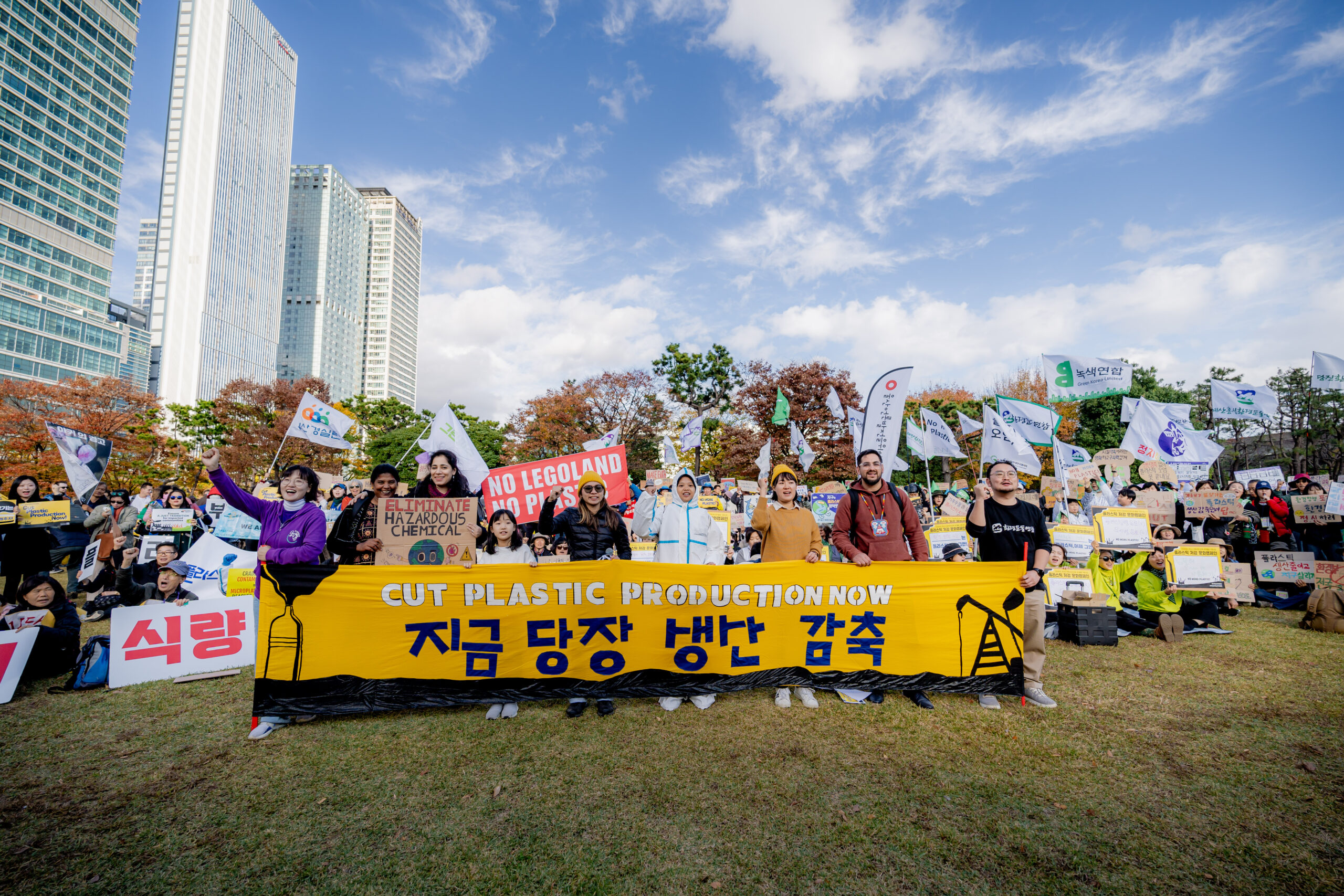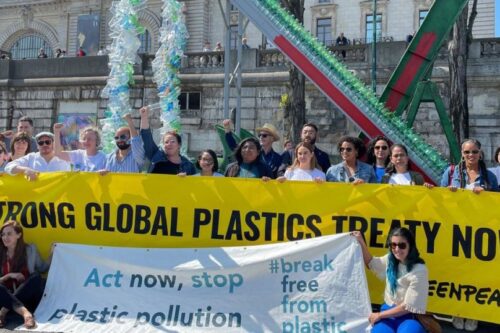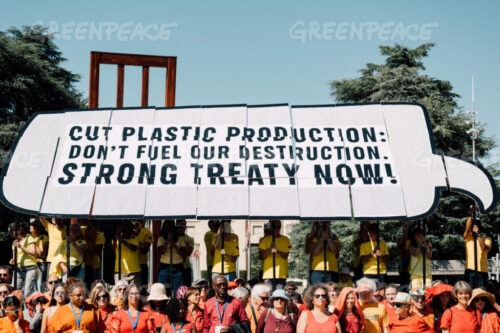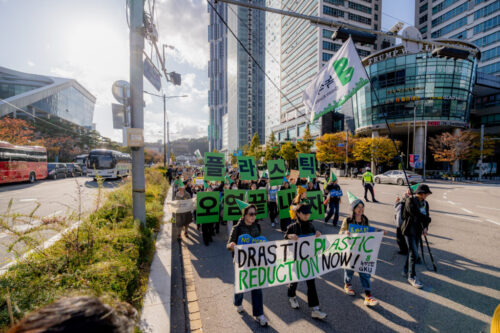Featured picture by Seunghyeok Choi From BFFP Comms Hub
On Sunday, December 1, fossil-fuel producers once again succeeded in stalling a Global Plastics Treaty at the fifth session of the U.N. Intergovernmental Negotiation Committee (INC) on Plastics Pollution in Busan. After working eight years to secure such a treaty, civil society groups of course feel some disappointment. But we are proud of the breadth and strength of this movement, and the governments who support it, who fought back against the plastics industry and refused to accept a weak treaty. While industry lobbyists continued efforts to derail the treaty, civil society solidified support from global majority countries to secure the ambitious commitments needed to resolve the plastics emergency. As we look toward the next year and further negotiations, we are in a stronger position than ever.
Our movement
The United Nations effort to address the plastics crisis is relatively new and came about only through the efforts of the global grassroots movement, which has built up public opposition over the last decade. Starting with public concern about plastic pollution in the oceans, this movement has deliberately and successfully changed the narrative from the results to the causes of plastic pollution. These efforts precipitated the United Nations Environment Assembly’s (UNEA) adoption of a resolution in March 2022 to develop a Global Plastics Treaty that addresses the full life cycle of plastic from production to design and disposal. Over the last four sessions, more and more countries—led mostly by the Global South—united with this movement to make clear the connections between plastic production, human health, and climate change, and stand strong for a visionary treaty. In Korea, more than 100 governments and most of the world’s major media outlets were telling this same story.
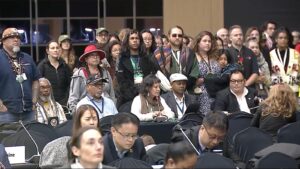
Jen Fela – Plastic Pollution Coalition
INC-5 Busan Session
Delegations at this session in Busan, South Korea, debated multiple proposals from INC Chair Ambassador Valdivieso of Ecuador in an attempt to reach a final agreement. And even though this meeting failed to deliver a final Global Plastics Treaty, there was very real discussion around issues that would have been unthinkable just two years ago. This includes convergence on reducing production, addressing the most dangerous chemicals and plastics, and ensuring dedicated funding. Even more encouragingly, more and more countries agree with such strong measures, while those in opposition are actually few. While the session ended without agreement on the final text, momentum is on our side.
All this is made more remarkable by the exclusion of civil society from so much of the negotiations—deliberately, through the use of closed-door and informal negotiating sessions, and practically, because UNEP and the Korean government failed to provide a venue that accommodated observer participation. While this was a clear failure to uphold the rights of civil society observers within the U.N. system, it was also a reminder of the power of civil society movements, as we continued to exert pressure on countries from the outside, encouraging participants to hold the line and not bow down to a bad treaty.
The opposition
Perhaps the clearest evidence of progress is the harried backlash from the plastics industry. Their funding has unleashed startling amounts of money, which they’ve spent in a desperate—yet widely visible—attempt to derail the treaty. According to the Center for International Environmental Law, 220 lobbyists from the chemical and fossil fuel industries registered for Busan, making up the largest single delegation and significantly outnumbering even the European Union and all its member states combined. This brazen display prompted a joint letter from the U.S. Congress and EU Parliament, calling for global leaders “to address the undue influence of plastic-producing corporations.”
The industry’s frenzy is also apparent in the deluge of pro-plastic ads running around the world. Last week,The New York Times reported on leaked documents obtained by watchdog Fieldnotes from the National Association for PET Container Resources (NAPCOR). The trove revealed a massive campaign to promote plastics, with tax filings showing the group spent $1.8 million on the campaign between 2019 and 2023. Notably, they heavily featured the message “plastic is not single use”—in a testament to the movement’s influence.
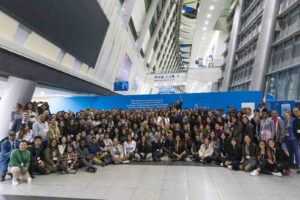
Kiara Worth – ISD/ENB
The way forward
Following a climate COP in Baku Azerbaijan that was almost completely derailed by fossil fuel-producing countries, progress toward the Global Plastics Treaty is a bright spot, making it all the more important to take it over the finish line. Civil society has led the charge that got us to this point—but victory requires sustained effort. Ahead of additional negotiating sessions, yet to be scheduled, this movement will need significant support to continue their successful efforts. Now is the time for philanthropy to double down in support of an ambitious treaty before this window of opportunity closes.
At the closing plenary session in Busan, the Rwandan delegate spoke on behalf of all those fighting for the treaty, urging “let’s stand up for ambition, let’s get it done.” We intend to keep up the fight and hope you’ll join us.
By Nicky Davies, Executive Director or the Plastic Solutions Fund, December 9th, 2024

